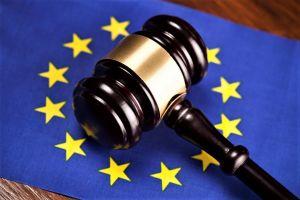EU Finance Chiefs Advised to Regulate Exchanges, ICOs
EU economy and finance ministers reportedly will be advised to adopt a common policy on cryptocurrencies, and will be asked to consider regulating trading and policing initial coin offerings (ICOs).

News agency Reuters claims a Belgian economic think-tank named Bruegel – which advises governments on regulatory issues – has prepared a report that suggests cryptocurrency exchanges in the region should be policed. The document also suggests that financial authorities should make European companies meet certain criteria if they are to issue ICOs. It is estimated that ICO funding originating in the EU currently accounts for 30% of the worldwide market.
Reuters states that the report will be presented to ministers at an informal meeting of the EU economic and financial affairs ministers, which will take place on September 7 and 8 in Vienna, Austria.
EU finance ministers have discussed the introduction of cryptocurrency regulations at previous summits, but have decided against taking action due to the relatively small size of the market. However, ministers have previously expressed concern about market volatility, as well as potential fraud and money laundering-related issues.
Reuters says that a rise in exchange-related business in Europe and “considerable interest in ICOs in EU countries” could force ministers to reconsider their laissez-faire approach. As reported, major exchanges such as Binance, OKEx, and ZB.com have decided to move to Malta. However, according to the report, such exchanges might need to be tolerated for some time “to experiment and learn about the best approaches to this fast-developing technology”.
Bruegel says regulation of bitcoins as such is impossible because of their virtual nature, but that of entities dealing with the instruments, such as exchanges, could be subject to stricter rules, according to the report.
As reported, new EU rules on money laundering will increase checks on crypto exchanges but are unlikely to be fully operational in all member states before 2020.
The regulation of the crypto world is a very complicated task, while some even doubt that it could be regulated at all, as reported by the Cryptonews.com. One of the main problems is the lack of clear definitions, while the tokenization of assets, competition between countries, and different regulatory approaches makes this even more challenging. And it doesn’t seem that the problem will be solved anytime soon, in the EU, at least. For example, the definition of a security token in the EU might only be confirmed after the elections of the European Parliament to be held in May 2019.
Moreover, regulation globally is challenging because industry players in different regions use their own rules.
In either case, the G20 countries sent a positive sign to the crypto market this July, by stating that crypto-assets can deliver ‘significant benefits’ to the financial system, as well as the broader economy, however, ‘vigilant’ monitoring is necessary. Also, the Financial Action Task Force (FATF), a 37-country group set up in Paris by the G7 countries, has to present to the G20 a clarification how FATF standarts apply to crypto assets this October. The task force’s mission is fighting financial crime, with the aim of eliminating cryptocurrency-based fraud and money-laundering.




